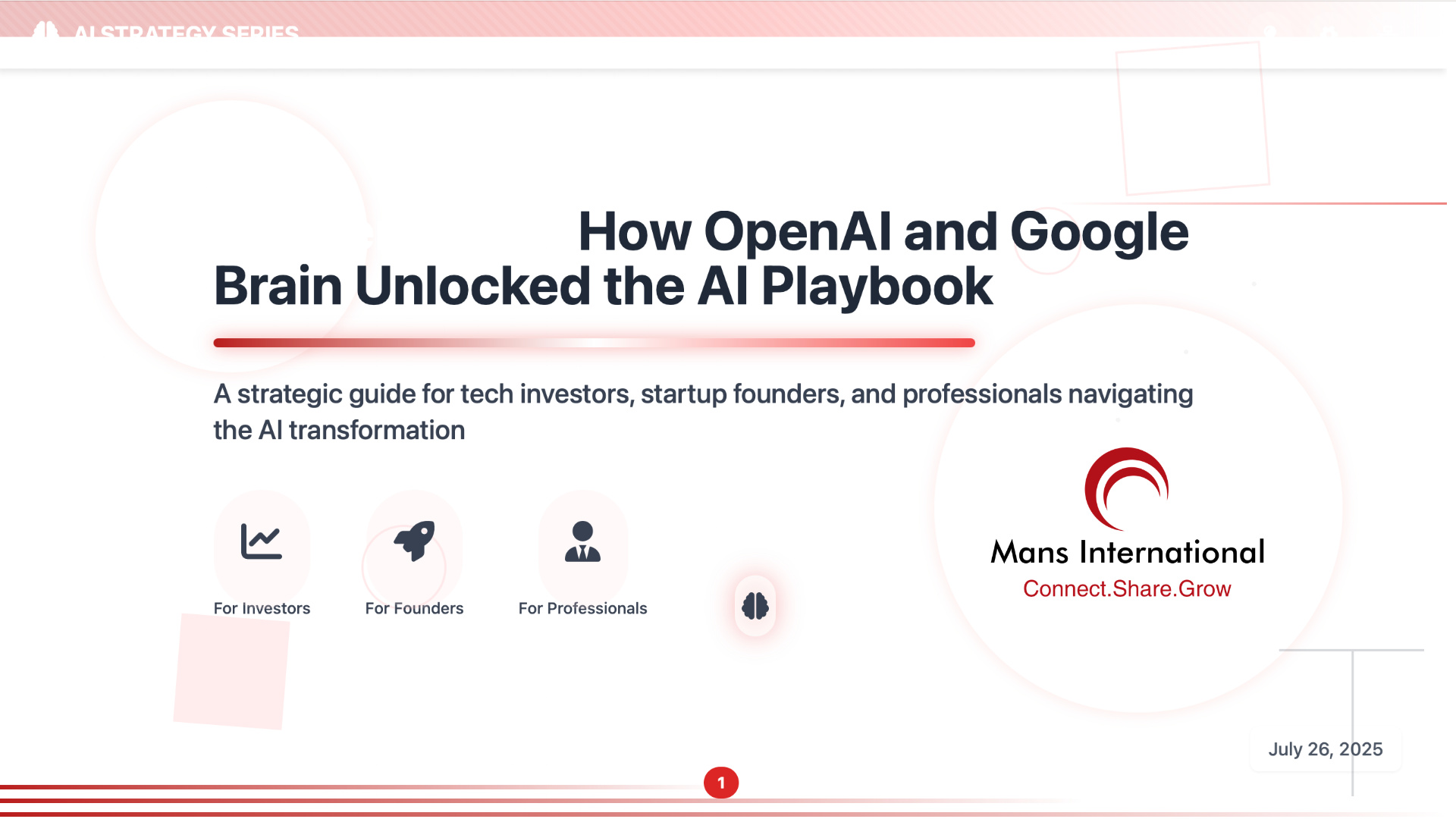If you’re investing in AI, building with it, or worried about being replaced by it, there’s one principle you need to understand: Verifier’s Law.
Last Friday, we hosted a session as part of the MANS International AI Strategy Series, where we unpacked Verifier’s Law — developed by Jason Wei, a leading AI researcher who recently left OpenAI to join Meta’s Superalignment team.
This under-the-radar principle explains why AI is transforming some industries faster than others — and how to anticipate what’s coming next.
What is Verifier’s Law?
“Any task that is possible to solve and easy to verify will be solved by AI.”
— Jason Wei
In simpler terms: if a machine can be trained to judge whether an output is good or bad—quickly, accurately, and at scale—it will master that task faster than we expect.
What Is the “Asymmetry of Verification”?
The Asymmetry of Verification refers to tasks that are difficult to perform but easy to verify. In other words, while producing the solution requires significant time or expertise, checking whether the solution is correct is fast and straightforward.
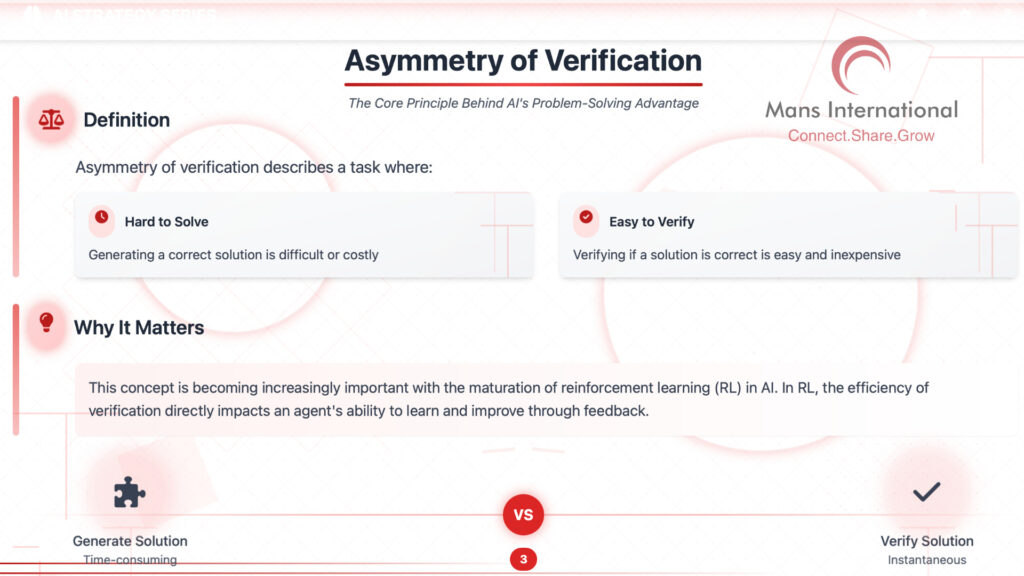
Here are some everyday examples:
- Sudoku: Solving a puzzle can take 20 minutes, but verifying a completed solution takes just 2 seconds.
- Software development: Writing backend code may take weeks; running it to check if it works takes only seconds.
- Research questions: Finding a reliable answer might take hours; verifying it can take just a few clicks.
This asymmetry is exactly what today’s most advanced AI systems — like ChatGPT, GitHub Copilot, and AlphaEvolve — are harnessing at scale. They don’t just solve problems — they thrive in domains where verification is easy, allowing them to learn faster, adapt quicker, and outperform expectations.
Five Criteria That Make a Task “AI-Solvable”
According to Verifier’s Law, developed by AI researcher Jason Wei, certain tasks are particularly well-suited for AI. They share five key characteristics:
- Objective truth — There’s a clear standard for what’s correct, with little room for disagreement.
- Fast verification — You can quickly determine whether a solution is right or wrong.
- Scalable verification — It’s easy to verify many outputs at once, enabling rapid learning.
- Low noise — The verification process reliably reflects the true quality of the solution.
- Continuous reward — Solutions can be ranked along a spectrum from poor to excellent, not just right or wrong.
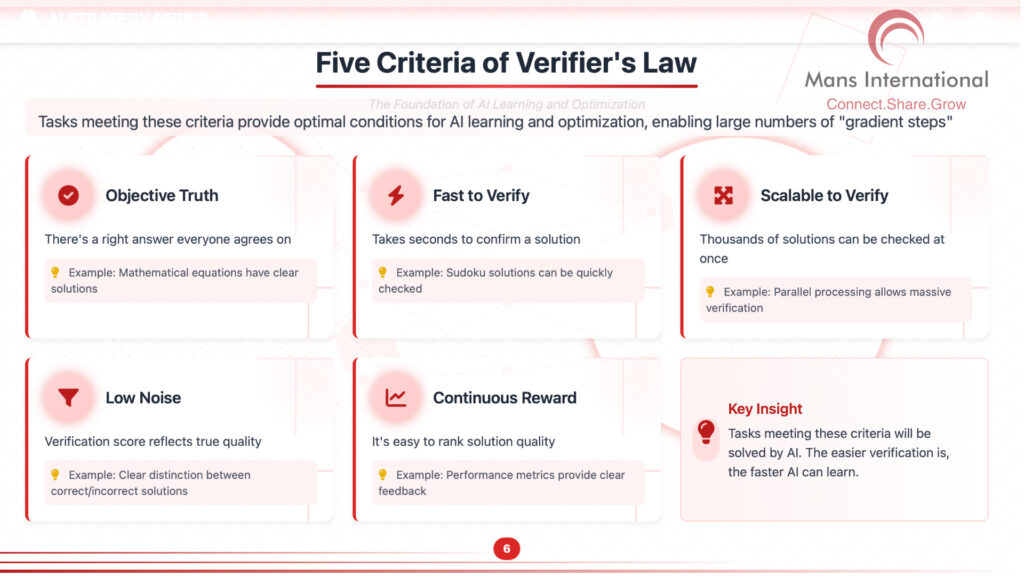
If a task meets three or more of these criteria, it’s a strong candidate for AI automation — and likely to be transformed sooner than expected.
Case Studies: How OpenAI and Google Brain Apply Verifier’s Law
AlphaEvolve (Google Brain)
Challenge: “What’s the smallest hexagon that can fit 11 unit hexagons?”
Insight: Solving this geometric optimization problem is difficult — but verifying a solution is instant.
Result: AI explored solutions at scale, uncovering designs that human experts hadn’t imagined.
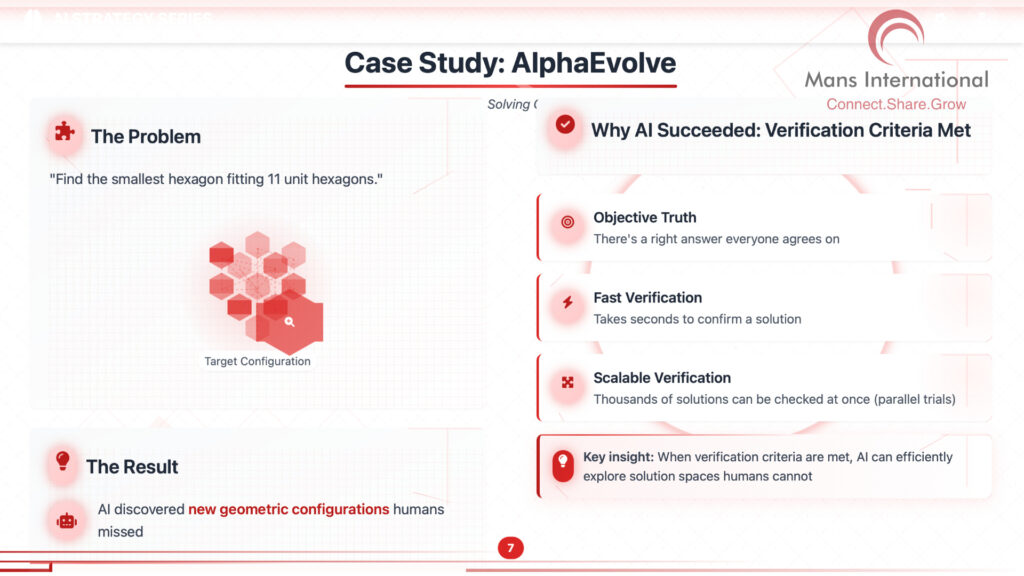
GitHub Copilot (OpenAI)
Challenge: Automating code generation
Process: Copilot generates code → automated tests verify correctness → feedback refines future outputs.
Result: A continuous improvement loop powered by fast, scalable verification.
These breakthroughs didn’t just rely on AI’s intelligence — they were engineered around verifiability, accelerating progress in ways traditional approaches couldn’t.
What This Means for You
For Investors
Use Verifier’s Law as a lens for evaluating AI startups. Ask yourself:
- Can the AI’s output be tested and measured quickly?
- Are feedback loops built into the product design?
- Does the task satisfy three or more of the five AI criteria?
Invest where verification is fast and iteration is cheap. That’s where AI compounds value quickly.
For Founders
Want to build a high-impact, defensible AI product?
Focus on:
- Tasks that are time-consuming or expensive to solve manually
- But cheap and fast to verify
Don’t just solve problems — engineer them to be verifiable.
That’s where you unlock scalable feedback and competitive advantage.
For Professionals
Concerned about being replaced by AI? You’re not alone.
Here’s the hard truth:
AI will dominate tasks where solutions are easy to verify.
Resilient jobs will involve:
- Ambiguity, complexity, or nuance in defining a “good” result
- High-context decision-making
- Human trust, ethics, or emotional intelligence
The more difficult it is to verify your work, the longer it will take for AI to replace it.
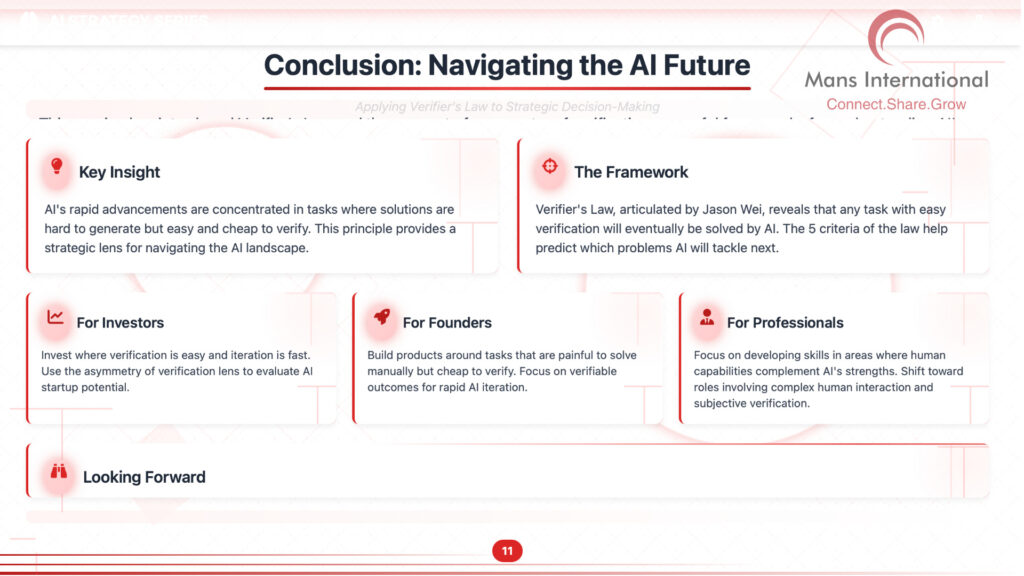
Ready to Apply Verifier’s Law?
We’re opening 2 spots for investors who want expert support evaluating their AI portfolios — and 3 spots for founders seeking feedback on whether their project has real market potential.
Get personalized insights. Build smarter. Invest wiser.
→ Message us to claim your spot.
The MANS International AI Strategy Series is currently available exclusively to our valued clients, strategic partners, and registered members.

